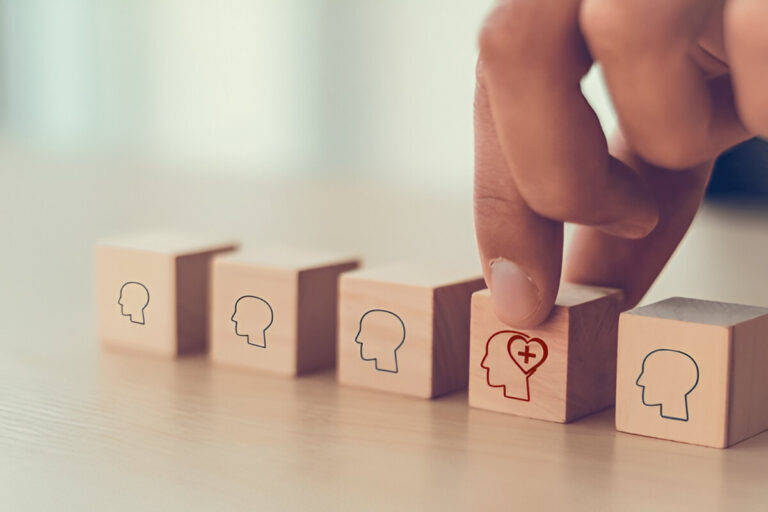It happened one more time. You told someone “goodnight” instead of “good morning.” Another awkward moment you’ll remember when you can’t sleep at night. Is this situation really something to worry about?
For now, the answer is yes. You tend to make your embarrassing moments seem bigger than they really are. Don’t let those thoughts stay with you for too long. Let them help you understand how to overcome being embarrassed.
That is what we want to focus on. We want to talk about how to overcome something you said or did that made you feel embarrassed and what led to those feelings. Getting to know the science behind those embarrassing times will help you overcome them.
Table of Contents
ToggleWhat does it mean to be embarrassed?
When you make a mistake or blunder before someone else, you usually feel embarrassment which means you feel ashamed or self-conscious.
The bigger the crowd, the bigger the chance of embarrassment. In some cases, how embarrassing you feel is determined by the importance of the person you do it in front of.
Embarrassment is likely to cause you to feel this way:
- An increase in heart rate
- The body starts to sweat.
- Thinking about the same thing over and over and automatic thoughts
- Experiencing self-consciousness
- Having trouble calming your mind
- Lower self-esteem
For example, you might walk into a movie theatre and trip, making you spill both your popcorn and drink. All the people in the theatre watch you and you have to walk by them with soda on your clothes to sit down. You realize you could have prevented the accident and lots of people saw what happened.
Such situations remind you that it’s important to overcome public embarrassment.
It’s not only about blushing or feeling uneasy in public. You’ll be using science to find out what’s really happening.
Everyone experiences and sees embarrassment in their own way. What influences you may not impact others. If you want to learn better ways to handle your embarrassment, you can speak to a BetterUp coach. Our experts will create a personal plan to help you achieve your aims.
What makes us feel embarrassed? The explanation behind it
When we feel embarrassed, we often feel ashamed, guilty and afraid. If you’re shy and easily embarrassed, you may not have dealt with your shyness yet. You may also experience a social anxiety disorder such as extreme embarrassment anxiety.
If you are afraid of making a mistake, you might not take part in social events which could harm your social health.
But let’s see how our brains cause us to feel embarrassed. The amygdala is what our brains use to handle emotions. Embarrassment is carried by neural pathways formed by the ventral anterior insula and the amygdala. Like other emotions, our brains handle embarrassment in a certain way.
Let’s look at four explanations for why we might feel embarrassed.
Thoughts about how we interpret what is happening to us:
When we think that tripping down the stairs is embarrassing, it can make us feel embarrassed.
Expecting bad things to happen:
We often know that people will notice and judge us before anyone actually does.
The process of managing how people behave in society.
Over time, embarrassment has served to prevent us from getting involved in situations that might not be good for us.
Being noticed by others when you don’t want to:
Even if we haven’t done anything illegal, we might still get noticed and have people focus on us. If you are shy or don’t like crowds, being the center of attention may make you feel very uncomfortable.
Still, scientists do not all agree on this subject. There isn’t one theory that can explain all embarrassing situations or the feeling. Besides, what might make someone feel very awkward could be no big deal for others. What’s the point? Let’s find ways to leave our embarrassing experiences behind us.
You should act now: Being embarrassed won’t hold you back.
You shouldn’t let the fear of embarrassment take charge of your life. You want to deal with your shame in a healthy manner. If you can avoid embarrassment controlling your life, you’ll feel more confident at work and express your feelings better.
At the beginning, some of these plans can look quite challenging. Jumping into new learning opportunities and approaches is useful, but don’t try extremely tough ones right away.
Listed below are five actions you can do to overcome embarrassment.
Show yourself compassion:
It’s common to feel guilty and blame yourself for what you did. Show yourself kindness and don’t get upset if you slip up.
Face up to what has happened:
If you’ve done something embarrassing, handle the cleanup as soon as you can. If you confront the situation, you’ll likely feel better than if you keep avoiding it.
Have a good time laughing.
Have you ever realized that your embarrassing moment can make you laugh? Notice the good parts; if something makes you laugh, go ahead and laugh. It will help make things less serious.
Try to breathe deeply.
If you’re feeling anxious and worried after your mistake, try to take it slow. Breathing mindfully is a good way to start and try to make yourself feel calm both inside and out.
Share your feelings with a friend.
Find a person you trust and talk about what is happening to you. Pay attention to the suggestions others give you. You may find that your situation isn’t as bad as it seems. You can also laugh about the situation, discuss what you learned and continue on your way.
The last thing you should do after being embarrassed is put yourself down. It doesn’t help to reject how you feel or question your skills. If you’re not sure what to do, we’ve made a list of things you should never say to yourself after feeling embarrassed (or at any time):
- I feel like I’m so dumb.
- I don’t know what made me try in the first place.
- All my attempts end up being unsuccessful.
- I don’t have to feel guilty because others have a harder time than I do.
- I’m trying to ignore it and pretend that it didn’t happen.
- Excellent news: You have people around you who can help
Do you feel like you’re the only person who has ever been embarrassed? A lot of people try to overcome their feelings of embarrassment about what happened in the past. It’s normal.
There is a lot of evidence that public self-consciousness, where we feel exposed and can quickly become upset, is very common. It’s really about our response to those awkward times, whether we are acting or just watching. We’ll always feel awkward and embarrassed, no matter how old we are. It happens in life.
The good thing is that we can teach ourselves to get past embarrassment and keep going. People handle embarrassment differently from one another. However, we don’t have to face this by ourselves. You could benefit from having a conversation with a good friend or family member.
If your embarrassment leads to social anxiety or harms your mental health, it’s important to speak with a mental health expert. They’ll guide you to use approaches that fit the situations where you feel safe and comfortable.
Remember, everyone makes mistakes and they don’t change who you are.
Conclusion
Everyone feels embarrassed at some point; it’s our natural reaction when we feel awkward or on display. But, it doesn’t need to stop you or change who you are. By treating yourself with kindness, confronting the situation, and finding ways to laugh, you can turn embarrassing moments into opportunities for growth and self-compassion. Everyone makes mistakes and that doesn’t take away from your worth. Eventually, you’ll overcome embarrassment and feel more confident about yourself.
FAQs.
Why do we feel embarrassed and what is it?
When we feel embarrassed, it’s because we think we’ve done something wrong in front of others. It occurs due to cognitive processes, anticipation of judgment, and the brain’s emotional regulation systems.
Is it usual to get embarrassed about little things?
Yes, it happens to everyone. Personal factors, the situation you’re in and what you think matters often decide what brings embarrassment to someone. Moments that seem big at the time don’t always need to be important for your whole life.
How can I get over embarrassing memories?
Practice self-compassion, take deep breaths to calm yourself, and reframe the situation by finding humor or lessons in it. Speaking with someone you trust can help you think differently and move ahead.
How can you handle embarrassment when it happens?
Ways to handle the situation involve mindful breathing, solving it right away and telling yourself it’s OK for people to slip up. If you can, laugh at what’s happening it can help lift the emotional burden.
When should I turn to someone for help with anxiety caused by embarrassment?
If embarrassment keeps you from enjoying social life or causes you to feel anxious all the time, it’s wise to talk to a mental health professional. They are able to create strategies that are suited to your needs.





